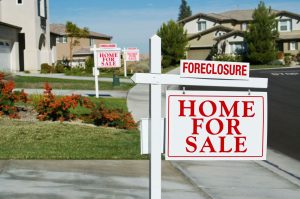September 7, 2016
What Lenders Owe the American Homeowners
By Sharon McElhone

When the hermit crab came out of its shell, my daughter showed it off. That is when another mother and I made introductions. Our families drove up from California to the pristine coast of Oregon to camp. Leslie mentioned she used to live in Oakland. They rode the housing bubble, eventually lost their house, then relocated to Sacramento, where she works as a librarian, her husband as a school teacher. They will never, she emphasized, buy a house again.
The timidity to be involved in a home purchase or refinance is one of the enduring psychological scares left on Americans since the meltdown. As a real estate agent and homeowner, I felt an urge to advise her to buy again since the right house is a good investment for a young family; but counseling someone you’ve known for only fifteen minutes didn’t feel appropriate.
The lending industry and our government have an obligation to heal the psychological wounds that Americans still carry eight years after the housing crisis. Americans like Leslie and her husband, who don’t believe in the dream of owning a home anymore, will not only hurt themselves financially in the long run, but these wounds also threaten American ideals and endanger our overall economy.
When Americans bailed out banks, there should have been a debt of gratitude owed to them, but I saw no gratitude and too much displacement during the most devastating economic crisis since the depression. I witnessed firsthand banks turn around and deny refinancing at lower rates for years, forcing homeowners to sell short or foreclose. It dawned on me then, and still dawns on me today, to ask why lawmakers don’t enact a law that stipulates lenders must refinance homeowners at the lowest rate available if they haven’t defaulted on their loan within two years. Our hard economic times called for that kind of creativity. However, many lenders have failed to extend the same grace to Americans that was extended to them in their time of need. Logic serves that if a homeowner struggles to pay the higher interest rate for two years, she or he would be a lower risk of defaulting if the mortgage had a lower interest rate and a lower payment. But relief never came to millions of homeowners and many banks are holding homeowners hostage in higher interest loans.
When the lending requirement of stated incomes went away, the banks killed small business owners and their ability to refinance or purchase a home. An accountant working out of her home could not only not get a refinance like the Goggle engineer or tech exec, but paid more interest than the engineer, which widened the class gap–same goes for hairdressers, landscapers, waitresses and other small businesses that drive local economies. In addition, teachers and librarians, like Leslie and her husband, who lost equity in their home and had lenders turn around and refuse to qualify them for a lower interest rate loan even when they were widely available, paid ultimate prices. Allowing lenders to deny young families, seniors, the self-employed and other small business owners refinancing has been a big oversight in America, and it continues to wreak havoc on Americans. Passing a law that guarantees a homeowner who has paid on a higher interest loan for a minimum of time the ability to get a lower loan rate will guarantee relief to homeowners and boost the economy. It means a bank can no longer require that a homeowner default on a loan before it can be modified. It also stops a bank from using arbitrary requirements that lead to a loan denied, so homeowners have to stay at higher rates.

Years ago, my husband and I were set to sign closing papers on a refinance that would have given us a lower interest rate and relief in the bad economy. The day before we were to meet with the bank, on a Wednesday, the bank’s lending agent called and said the underwriter asked for proof of tens of thousands in reserves in order to close the following day. It was a sum of money we could not come up with and the bank knew we didn’t have the reserve because we had disclosed all our financial information in the application. We didn’t get the refinance and continued to pay a much higher rate than was advertised by the bank.
We struggled for another year and applied again when things improved and a few days before closing on a lower interest rate loan, the same agent called and said the loan was denied because our income to debt ratio was too high. The next year, when we applied, we were denied yet again for another reason. We never defaulted on our loan, and we gave up trying to get a lower rate, which may be the idea. The story is the same for some elderly as well as various people running small businesses and for many other homeowners, who never default on their loans but are forced to pay higher interest rates. Allowing lenders to lock specific groups into higher interest rates hurts the middle class, it is a place where class division takes hold, and stops money from going back into the economy.
Seven years after the meltdown, when we finally found a broker who helped us get a lower rate, we discovered that banks have amassed trillions of dollars in real estate from foreclosures on Americans and are still holding those homes in portfolios today. They are not releasing the real estate back into the market in order to affect home values, which is yet another offense against Americans.
While our children peered at the hermit crab tucked inside a protective shell, our security seemed more frail than it once was. It also seemed lenders and lawmakers owed it to Americans to once again fully restore confidence in home ownership as a way to not only lift up the middle class up, but to also help stabilize the economy. After all, it’s the biggest investment an average American may make in their lifetime. I say may because there are those like Leslie who no longer believe in the ideal of owning a home and that signals a disparate break from American convention.
